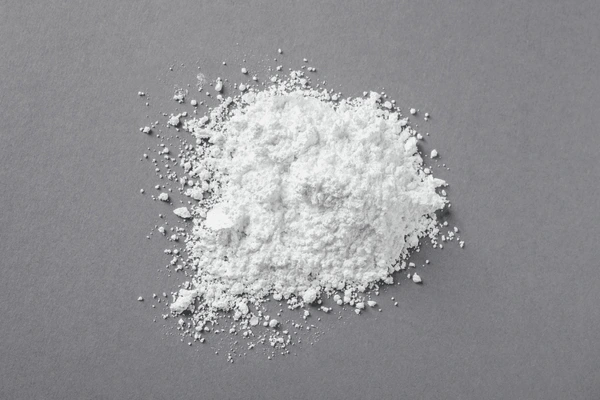
Calcium carbonate is a substance that we encounter frequently in our daily lives, often without even realising it. This chemical compound plays a crucial role in a variety of fields, from construction materials to the food industry. This article explores in depth what calcium carbonate is, its main characteristics, its chemical structure and its many practical applications.
It is a chemical compound with the formula CaCO3. It is a carbon salt of calcium which, when exposed to an acidic solution, dissolves to form carbon dioxide (CO2) and water (H2O). It occurs widely in nature in the form of minerals such as calcite, chalk and marble.
The chemical description of calcium carbonate reveals its simple composition. A calcium ion (Ca2+) combines with a group of bicarbonate ions CO32-. The molar mass is approximately 100 g/mol, which means that each mole of the substance weighs 100 grams.
Calcium carbonate is ubiquitous in sedimentary rocks such as limestone and chalk. These rock formations are generally the result of biochemical processes in which marine organisms such as shellfish or corals accumulate calcium carbonate in their external structures. Over millions of years, this organic debris is transformed into vast beds of limestone.
Industrially, it is extracted by mining and quarrying. Extraction methods vary according to the type of deposit; they include blasting massive limestone rocks, followed by crushing and grinding to produce a fine powder. This powder can then be chemically or thermally treated for various applications.
In the construction industry, calcium carbonate is used mainly in the form of limestone and marble. These stones are prized for their robustness and aesthetic appeal, and are suitable for both facade cladding and interior tiling. Calcium carbonate is also used as a basic raw material in the manufacture of Portland cement, which is essential for concreting.
Calcium carbonate is used in a variety of ways in the food industry. It is added as a nutritional supplement to prevent calcium deficiency. It is also used as an anti-caking agent to keep food powders lump-free. Its presence in certain bakery products also improves their texture.
Calcium carbonate is commonly used in the pharmaceutical industry. In particular, it is found in antacid tablets, where it neutralises excess stomach acid. It is also added to certain drug formulations to increase their bioavailable calcium content.
In paper production, calcium carbonate is used as a filler and bleaching agent. It simplifies the manufacturing process while improving the whiteness and surface of the finished paper. This not only optimises production costs but also results in a higher quality end product.
Although it is generally insoluble in water, it becomes soluble in low concentrations under the effect of the carbonic acid formed when carbon dioxide dissolves in water. This phenomenon explains the formation of caves and stalactites in environments rich in limestone.
Among its typical reactions, it reacts vigorously with acids to produce carbon dioxide, water and salt. This characteristic is exploited, among other things, in laboratory experiments where vinegar (acetic acid) is used to releaseCO2 from chalk.
Calcium carbonate mining has a significant impact on the environment. Blasting and mining disrupt local ecosystems, changing the topography and sometimes leading to a loss of biodiversity. It is therefore essential to manage these activities in such a way as to minimise ecological damage.
As beneficial as mining can be, it also presents challenges for human health. Prolonged inhalation of fine dust during industrial processes can lead to serious respiratory problems, such as silicosis. Consequently, strict safety and personal protection measures are required when handling calcium carbonate wholesalers.
Economically, calcium carbonate is a major asset for various sectors. Its extraction and processing create jobs while supporting many industries, from construction to food and pharmaceuticals. Local economies can therefore benefit considerably from its associated activities.
Technical innovations in the use of calcium carbonate are continually leading to process improvements and productivity gains. In manufacturing, its application reduces production costs while maintaining or even increasing the quality of finished products, making companies more competitive.
